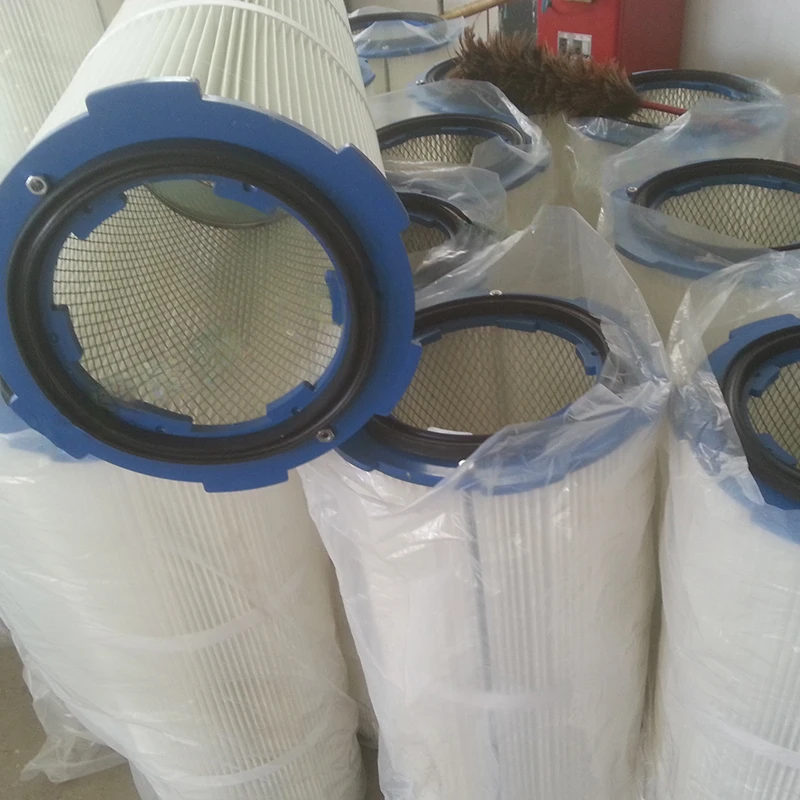 Tel:
+8615930870079
Tel:
+8615930870079
Dec . 14, 2024 18:47 Back to list
industrial air filter cartridges
The Importance of Industrial Air Filter Cartridges
In industrial settings, maintaining high air quality is crucial not only for the health and safety of workers but also for the efficiency and longevity of machinery. One of the most effective ways to ensure clean air in these environments is through the use of industrial air filter cartridges. These cartridges play a pivotal role in capturing airborne contaminants, thereby protecting both people and equipment from harmful particles.
Understanding Industrial Air Filter Cartridges
Industrial air filter cartridges are specially designed to trap a wide range of pollutants, including dust, smoke, pollen, oil mist, and even harmful gases. They typically consist of a filter media that can be made from various materials, such as synthetic fibers, fiberglass, or activated carbon, depending on the specific application.
The design and specifications of these cartridges vary according to the unique requirements of different industries. For instance, some filtering systems are tailored to capture particulates larger than 0.5 microns, while others tackle finer pollutants or even gaseous contaminants. The efficiency of a cartridge is often measured by its Minimum Efficiency Reporting Value (MERV), with higher ratings indicating a greater ability to remove smaller particles from the air.
Benefits of Using Industrial Air Filter Cartridges
1. Health and Safety One of the primary benefits of industrial air filter cartridges is the enhancement of workplace safety and public health. Contaminated air can lead to respiratory problems, skin irritations, or other health issues for employees. By installing effective air filtration systems, industries can significantly reduce these risks and create a healthier work environment.
2. Equipment Protection Industrial machinery often operates in environments filled with dust and other particles. These contaminants can lead to wear and tear, decreasing the lifespan and efficiency of equipment. By capturing these pollutants, air filter cartridges help to extend the life of machines and reduce maintenance costs.
3. Regulatory Compliance Many industries are subject to strict air quality regulations enforced by governmental authorities. Using high-quality industrial air filter cartridges can help companies remain compliant with these regulations, avoiding potential fines and legal issues while promoting a commitment to environmental protection.
4. Energy Efficiency Dirty air filters can hinder airflow, forcing HVAC systems to work harder. This not only increases energy consumption but can also lead to higher operational costs. Regular maintenance and timely replacement of air filter cartridges can help ensure optimal airflow and energy efficiency.
industrial air filter cartridges

5. Versatility Industrial air filter cartridges are available in various configurations and sizes, making them suitable for a range of applications from manufacturing plants to agricultural facilities. Their adaptability allows industries to customize their air filtration systems based on specific operational needs.
Selecting the Right Air Filter Cartridge
Choosing the appropriate industrial air filter cartridge requires careful consideration of several factors
- Type of Contaminants Identify the specific particles and gases present in the environment. This will help in selecting a cartridge that effectively addresses the unique air quality challenges of the facility.
- Flow Rate The cartridge must be compatible with the system’s airflow requirements. A mismatch can lead to inefficiencies and diminished filtration performance.
- Environment Consider the temperature, humidity, and overall environmental conditions in which the cartridge will be used. Certain materials may perform better in specific settings.
- Maintenance Needs Assess how often the cartridges will need to be replaced and whether they require any special handling procedures.
Conclusion
In conclusion, industrial air filter cartridges are indispensable components of a safe and efficient workplace. By effectively capturing airborne pollutants, they promote health, protect equipment, ensure regulatory compliance, enhance energy efficiency, and offer versatility across various applications. As industries continue to evolve, investing in high-quality air filtration technologies remains a priority for fostering a safe and sustainable working environment. Regular monitoring and maintenance of air filtration systems will ensure that they perform optimally, safeguarding both people and machinery in the process.
-
Types and Applications of Air Filtration CartridgesNewsJul.28,2025
-
The Role of Gas Turbine FiltersNewsJul.28,2025
-
Mastering Air Filter Cartridge UseNewsJul.28,2025
-
Advanced Turbine Filters for Modern Gas TurbinesNewsJul.28,2025
-
Cellulose Air Filter Cartridge Advantages in Dust FiltrationNewsJul.28,2025
-
Cellulose Filters for Air Particle ReductionNewsJul.28,2025

 Email:
Email:





